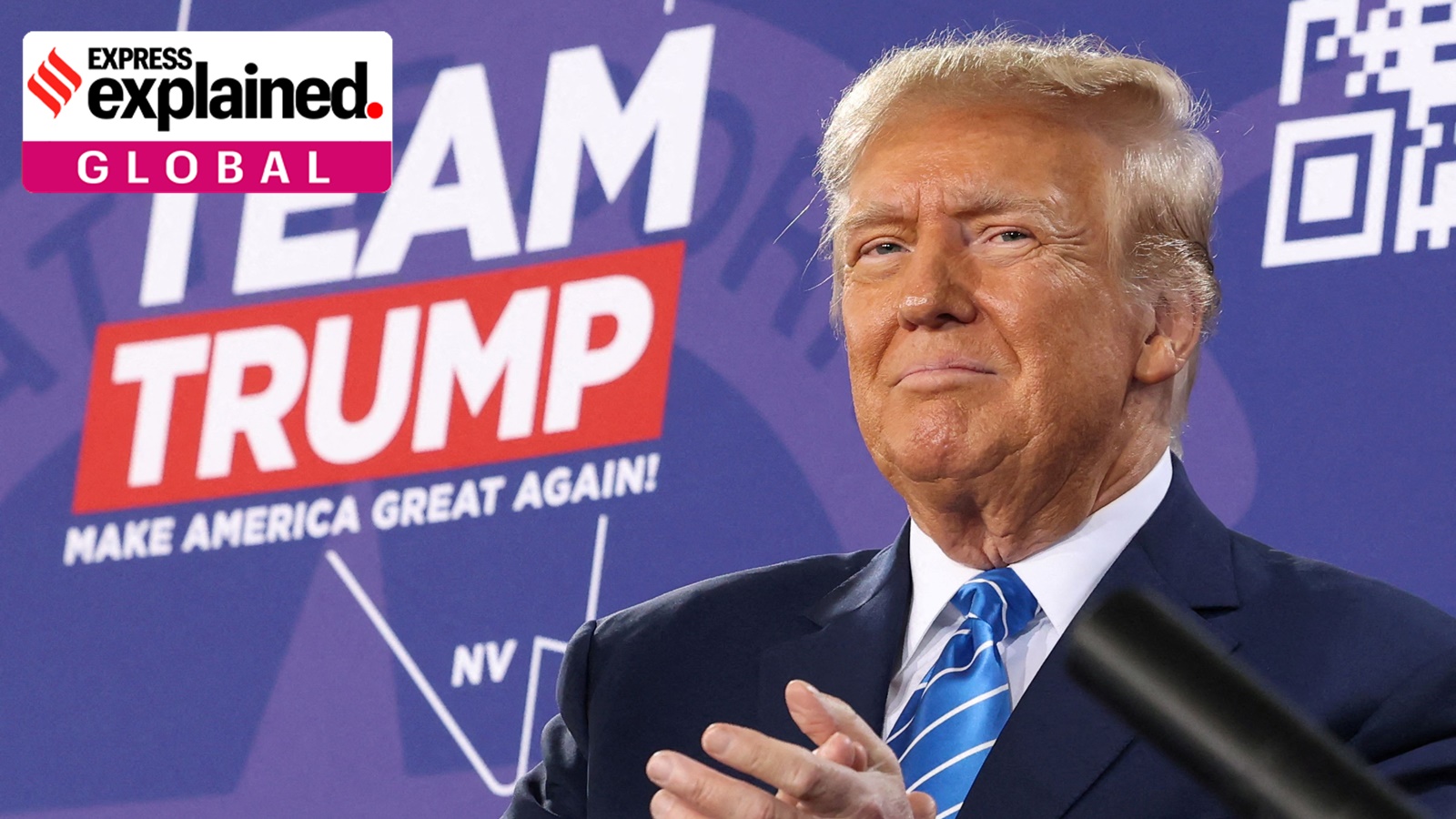What is the classified documents case against Donald Trump, now dismissed by court?
The classified documents case is among the four criminal cases brought against Trump. He was indicted last year on multiple counts, including retaining classified information and obstructing justice.
 Republican presidential candidate and former U.S. President Donald Trump holds a campaign rally ahead of the Republican caucus in Las Vegas, Nevada, U.S., January 27, 2024. (REUTERS/Ronda Churchill/File Photo)
Republican presidential candidate and former U.S. President Donald Trump holds a campaign rally ahead of the Republican caucus in Las Vegas, Nevada, U.S., January 27, 2024. (REUTERS/Ronda Churchill/File Photo)In a relief to Republican Presidential candidate and former US President Donald Trump, the classified documents case against him was dismissed on Monday (July 15) after US District Judge Aileen Cannon sided with defence lawyers. They had argued that the special counsel, who filed the charges against Trump, was illegally appointed in the case by the US Justice Department. The decision can be appealed at a higher court.
In a report, the Associated Press also described the case as the most “perilous” of the legal cases pending against Trump. The decision comes ahead of the Republican National Convention this week, where he will be officially confirmed as the party’s nominee. It also comes after an assassination attempt against him on Saturday, which led to an injury in his right ear.
What was the classified documents case?
The case is among the four criminal cases brought against Trump.
In May 2021, a few months after Trump left office in January of that year after losing the 2020 Presidential elections, he was asked to hand over certain classified government documents in his possession. The government’s National Archives and Records Agency (NARA) notified him that he had failed to turn over at least two dozen boxes of original records.
In December of that year, his team told the Archives that they had located some of the records and proceeded to return them.
The New York Times had reported at the time, “The investigation into Trump’s handling of classified documents began in earnest in May 2022 with a subpoena. It sought the return of any classified material still in his possession, after he had voluntarily handed over an initial batch of records that turned out to include almost 200 classified documents.”
Trump’s lawyer M. Evan Corcoran gave investigators more than 30 documents in response to the subpoena. Around the same time, another lawyer, Christina Bobb, asserted that a “diligent search” had been conducted at Mar-a-Lago, Trump’s private estate in Palm Springs, Florida, assuring prosecutors there were no more documents with classification markings.
However, in August 2022, the FBI arrived at Mar-a-Lago to conduct a search and discovered more than 100 additional classified documents.
It must be mentioned that Trump’s Vice-President Mike Pence and current US President Joe Biden have also faced scrutiny for having classified materials in their possession and an investigation is underway in Biden’s case. However, the Biden and Pence cases differ from that involving Trump. A significant difference is that documents in their possession were voluntarily turned over to investigators as soon as they were found, the AP reported.
“In the case of Trump, prosecutors have focused on a few key questions: Did Trump knowingly remove the sensitive records from the White House and did he willfully hold on to them in violation of the Espionage Act? Moreover, did he try to hinder investigators from figuring out why or where he kept them,” The New York Times said.
What were the charges against Trump?
In his June 2023 indictment in the case, Trump was charged with 37 counts, including retaining classified information, obstructing justice and making false statements, among other crimes. Three additional charges later included attempts to “alter, destroy, mutilate, or conceal evidence,” and of inducing another person to do so, according to AP.
Trump was alleged to have instructed a staff member at the estate to delete camera footage at the location in relation to the investigation. He also allegedly showed the documents to people not authorised to see them.
Last year, a Trump campaign statement dismissed the additional charges as “nothing more than a continued desperate and flailing attempt” by the Biden administration “to harass President Trump and those around him” and to influence the 2024 presidential race. Trump has denied the accusations and long described the legal cases against him as a “witch-hunt”.
Trump has also been indicted in a case relating to hush payments made to former adult film actress Stormy Daniels through his 2016 presidential campaign’s funds. Other cases against him are about his attempts to overturn the results of the 2020 elections — the Federal Election Interference and the Georgia Election Interference case.
Earlier this month, the Supreme Court of the United States ruled that US Presidents enjoy “absolute immunity” from criminal prosecution with regard to conduct concerning their “core constitutional powers”. The SCOTUS also protected Presidents’ “official acts” from becoming the subject of criminal prosecution.
- 01
- 02
- 03
- 04
- 05






































